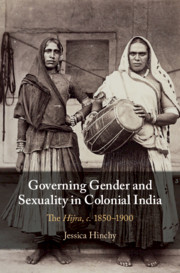[We have the following call for papers, presentations, and panels.]
“Rights and Wrongs: A Constitution and Citizenship Day Conference at San Francisco State University,” 16-17 September 2019
We welcome proposals for papers, presentations, panels, roundtables, teach-ins, and workshops at “Rights and Wrongs: A Constitution and Citizenship Day Conference,” which will take place on Monday and Tuesday, 16-17 September 2019.
Over the last few years, people living in the United States have participated in far-reaching debates and discussions about the U.S. Constitution. Many of these conversations have focused on democratic governance and its relationship to state and federal elections, foreign collusion and domestic conspiracy, political and ethical corruption, voting rights, legislative redistricting, and presidential impeachment. Some have addressed core constitutional principles related to the separation of powers, checks and balances, and federal-state relationships. Others have concerned specific constitutional provisions such as freedom of speech, freedom of the press, separation of church and state, privacy rights, rights to bear arms, protections against unreasonable searches and seizures, birthright citizenship, due process rights, and rights of equal protection. Meanwhile, some of the most polarizing national discussions of 2017, 2018, and 2019—about racialized policing, immigration restriction, sanctuary cities, health care, sexual harassment, LGBT rights, hate speech, and gun control—have been framed as matters of constitutional meaning and significance. Just as important and revealing are the constitutional topics that much of the country has not been considering, including the rights of indigenous, colonized, incarcerated, and institutionalized peoples on lands currently claimed by the United States.
What have we thought about the Constitution in the past and what do we think of it today? When, how, and why have we thought about the Constitution? How has the Constitution been used as a legal and cultural touchstone in the past and present? Has the Constitution supported the expansion of citizenship, democracy, and equality or has it produced, preserved, and promoted social hierarchies? What does the Constitution reveal and obscure? Is the United States experiencing constitutional crises? Have the country’s recent political troubles exposed longstanding problems with or new threats to the U.S. constitutional order? Can the history of the U.S. Constitution serve as a resource for people troubled by today’s uses and abuses of U.S. power and politics? For those seeking social change, is the Constitution an opportunity or obstacle? Can and should it be followed, changed, modified, or abandoned? Who makes meaning out of the U.S. Constitution and what meanings are made? What are the implications of our interpretations and transformations of the U.S. Constitution?
Please join us to discuss these and other issues at “Rights and Wrongs.” San Francisco State University has a proud tradition of sponsoring Constitution and Citizenship Day conferences. Last year’s event was sponsored by the College of Liberal and Creative Arts and cosponsored by fourteen other colleges, schools, departments, centers, and campus organizations at SF State. More than 1000 faculty, students, and community members attended the event, which featured two keynote presentations and approximately forty faculty, graduate student, and community-based presenters, representing fourteen colleges, universities, and non-governmental organizations. As was the case last year, the 2019 conference will provide multiple opportunities to reflect critically on the past, present, and future of constitutional rights and freedoms and larger questions about equality, democracy, and justice.
Proposals for papers, presentations, panels, roundtables, teach-ins, and workshops (maximum 250 words) should be submitted by
20 June 2019 to marcs@sfsu.edu. We welcome individual and group submissions. Please submit short vitas/resumes for all participants.
[Lists of recommended topics and the members of Organizing Committee appear after the jump.]










